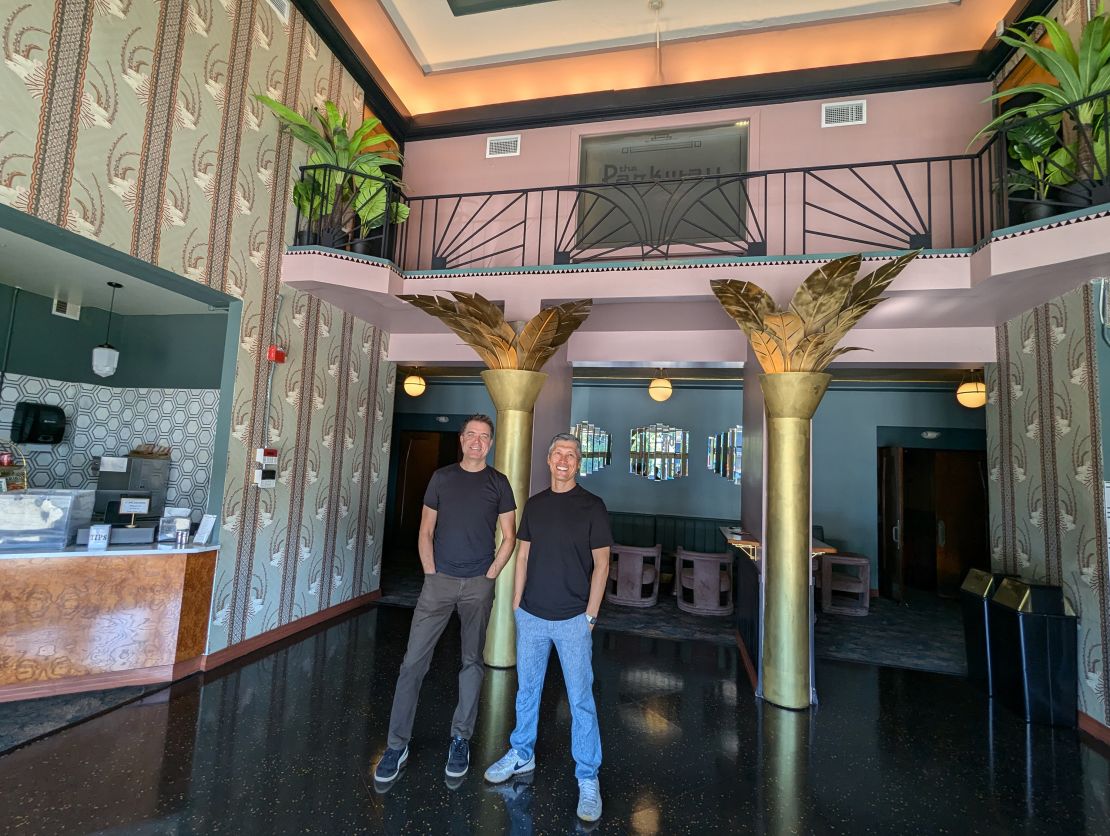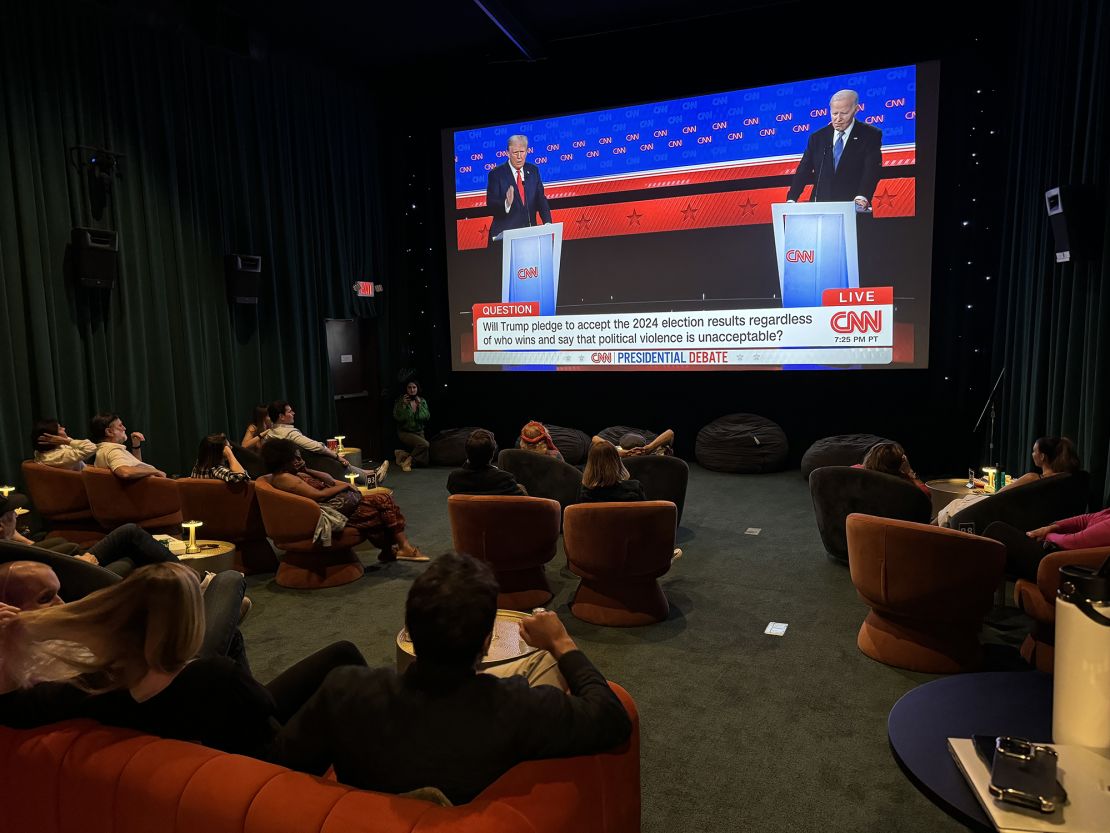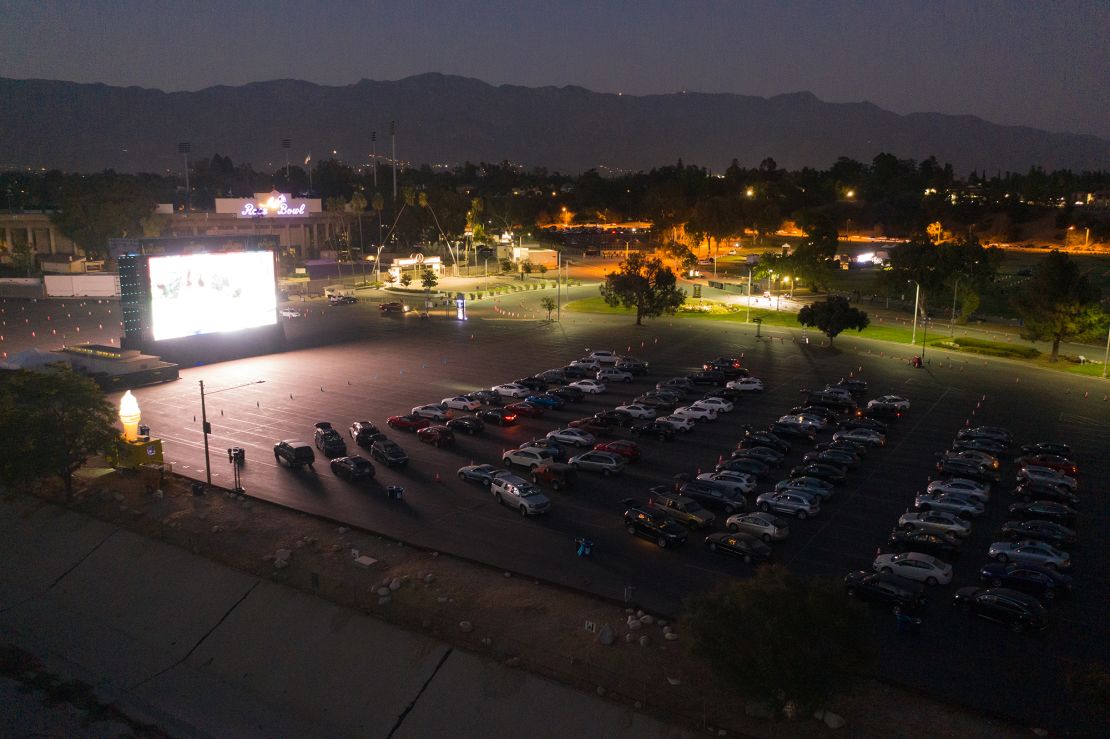For 90-plus years, the Parkway Theater has been a fixture in South Minneapolis, gathering generation after generation of patrons in front of its lone movie screen.
Outside of its walls, the years brought plenty of change: wars, economic swings, social movements, a pandemic, technological innovations, and the rise of antagonists — from the massive, multi-screen megaplexes to the bits and bytes that delivered films to people’s fingertips.
But this wouldn’t be the movie business without a few plot twists, a fair bit of strife and plenty of character development.
The movie exhibition industry remains in a state of flux as it navigates a slew of challenges including pandemic aftershocks, digital streaming, strike-delayed content, changing consumer tastes and a years-long bout of high inflation.
Cinemas and movie screens in the US have contracted in number since the pandemic, falling by about 1% from 2020 to 2022, according to data provided to CNN by Omdia, a London-based analyst and advisory firm. In 2023, the situation worsened, with cinema sites and screen numbers dropping by more than 6%, Omdia data shows.
The larger operators trimmed down the less-performing sites, while smaller cinemas who didn’t have as much leeway shut down, David Hancock, Omdia’s chief cinema and movies analyst, wrote in an email to CNN.
“After a shock like Covid, this is unsurprising, and there are other changes happening in leisure and media consumption that also impact cinemas,” Hancock wrote. “Our view is that cinema still has strong underpinnings but is going through a period of readjustment.”
The Parkway is still showing movies to the popcorn-eating masses — on Saturday, they’ll see “Ratatouille” and, later this month, “Young Frankenstein” presented on 35-milimeter film — but, like many other cinemas in a period when moviegoing has undergone a seismic shift, the independent cinema has had to become more versatile than it once was.
The Parkway Theater of today is one part revival house cinema, one part performing arts venue, and another part community event space.
“There was an opportunity to create this sense of nostalgia,” said Ward Johnson, who purchased the Parkway in 2018 with business partner Eddie Landenberger. “Unfortunately, what we realized pretty quickly when we started looking at the space is that it’s really hard these days to make a viable business to show movies seven nights a week.”
While some operators large and small have buckled, those that remain have gravitated toward innovation.
For the bigger companies, that’s meant anything from popcorn buckets to haptic vibrating seats. And for the smaller ones, anything goes.
“I’m throwing things up on the wall,” said Christian Meoli, founder of Cinelounge Cinemas in California. “I did a speed dating night for cinephiles so they can match up and then come see movies together. I just did a Wim Hof breathwork yoga class, and I put an ice plunge in the middle of the lobby.”
“I thought, ‘why not?’” he added.
The economics of running a movie theater — where at least half of the revenue goes to the studios — has long meant that cinema operators had to rely on the “secondary product,” said Ricard Gil, an associate professor who specializes in organizational economics at Queen’s University in Canada.
That’s typically been concessions, he said. However, it’s since evolved beyond the high-margin popcorn into other offerings, he added.
“The romanticism of showing movies has gone away a little bit, and movie theater companies have realized that they are real estate companies, and they have capacity, and they need to fill the capacity and they’ll do whatever [it takes] to actually do that,” Gil said.
While Hollywood had a big summer last year, thanks mostly to “Barbie,” and crowds turned out in droves for the emotion-filled “Inside Out 2” this summer, the movie business isn’t yet back to its pre-pandemic form.
Because of the strike-related content delays, box office/theatrical revenue is now expected to top pre-pandemic levels in 2026, versus the 2025 date projected a year ago, according to accounting firm PwC’s latest annual “Global Entertainment & Media Outlook” report.
Confetti and Schwarzenegger spelling bees
In Minneapolis, when Ward, a pet food industry veteran, and Landenberger, a commercial real estate broker and developer, purchased the Parkway Theater in 2018, the single-screen cinema was showing its age: the plaster crumbling, the seats torn, the paint peeling.
The duo brought the building down to the bones and gave the space its first major facelift in 40 years, playing up the art deco design elements and keeping, sandblasting and reupholstering the hundreds of original seats (whose walnut armrests bear a natural patina from decades of use).
The lineup leans heavily in to nostalgia as well — after all, the Parkway was a cinema from the very outset, receiving a “moving picture show” license in 1931 — so the theater plays classic movies and hard-to-find films. But the overall offerings as well as how those film are presented and enjoyed was party driven by the community.

In addition to turning classic movies into events (a “Terminator 2” pre-show spelling bee; an interactive “Die Hard” viewing where the audience pulled party poppers when the Nakatomi Plaza’s roof blows), the Parkway hosts live music and comedy shows on non-movie nights and offers up the space to the community for weddings, birthday parties, or even the resident who wants to hook up their game console to the big screen.
“I don’t think we knew going in that it was going to almost be like a watch party, but that’s something that just emerged as we started observing the audiences, and they were all super interactive,” Johnson said.
In Iowa City, Iowa, the nonprofit FilmScene cinema shows a wide variety of new releases in addition to offering a series of cinematic events in partnerships with nonprofit groups, advocacy groups, individuals and other organizations to “generate conversation and action inspired by film,” Andrew Sherburne, FilmScene’s executive director and co-founder told CNN in May.
That’s in addition to a free-for-kids series, a free movie in the park series, a pay-what-you-can series, and a slew of other community-centric screenings, he added.
“Our attendance grew 50% from 2022 to 2023 at a time that the industry is facing serious headwinds,” he wrote. “We’re focused on cultivating audiences through authentic relationships, which means programming curated for our specific audiences and big investments in community engagement.”

At Cinelounge, Meoli said he’s striving to be inventive with the cinema itself, offering up the theaters for private showings, watch parties for sports and concerts and hosting trivia nights.
“I was close to going under last year, and it was scary, and that’s why I think theaters these days really require a shared investment with the community,” he said. “Because there’s never a time you drive by a movie theater that’s closed and get a jolt of happiness.”
Cinema operators are no strangers to existential threats to their business. Before streaming and megaplexes and a sea of entertainment-centric competitors, there were big-screen TVs, DVDs, VHS, Blockbuster and Betamax.
In 2020, however, fears spiked that it would be the Covid-19 pandemic that would finally sound that death knell. Theaters were dark for months because of health-and-safety restrictions and cratering demand for indoor events. The future looked grim as film production abruptly halted as well, drying out the pipeline of new movies.
Still, there were glints of hope: Drive-in movie theaters and outdoor cinema experienced a revival.

While hundreds of movie houses did not survive, those that did were hit with a subsequent disruption: The Hollywood actors and writers’ strike, which pushed back more releases.
“It’s hard to get our customers back from Covid consistently,” said Bill Campbell, chairman of the Independent Cinema Alliance and owner of the Orpheum Theater in Sheridan, Wyoming. “We get jumpstarted, we do get the crowds, and then we’re in that waiting mode. Hopefully we get a consistent flow of content.”
He added: “We’re adapting, we’re holding on — some harder than others.”
Some cinema operators have had to “become showmen” again, to get people to the cinemas, said Rich Daughtridge, owner of the Warehouse Cinemas chain in Maryland and president of the ICA, a trade organization for small and independent theater operators.
“If they’re having success with that niche, then they’ll probably continue to do that,” Campbell said.
Still, cinema operators have to be cautious in their approach, said Kate Markham, administrative coordinator with Art House Convergence, a coalition of independent, community-oriented cinemas.
If one were to “eventize” every new release, there’s a concern of losing the uniqueness and the special aspect that attracted people in the first place, she said.
“Because they are community-based organizations, for the most part, they’re very entrenched with their audiences and audiences’ tastes and desires and have to differentiate themselves from those big chains and do something that will encourage audiences to come to them instead of going to the cineplex at the mall,” she said.
Straying too far into non-cinematic events, however, does carry some risk as well, she said.
“A lot of our members are mission-based, and that also means that they are showing films you cannot see anywhere else,” she said. “This might be the only opportunity that an audience has to see that film, so part of filling up your schedule is that you may not have time or the space to show some of these other things that help you accomplish your mission.”
Read the full article here